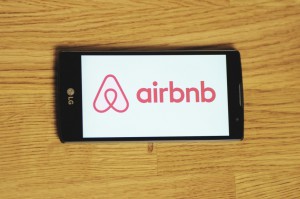Airbnb Host Allegedly Discriminates Potential Guest
We live in a world where we can summon a private driver to our door, along with your favorite meal. We can buy something online and have it arrive the next day, without too much trouble. We can even rent someone’s home for a quick vacation.
But not all of these new advances are without issue. While Uber faces legal trouble and community backlash for their treatment of drivers, Airbnb is now facing backlash for hosts refusing to book people due to their race.
Airbnb faces a civil rights lawsuit from Gregory Selden. He seeks to create a class action claim to represent thousands of other individuals who were denied bookings on Airbnb due to their race. However, Airbnb did not refuse the bookings; instead it was the homeowners who advertise on Airbnb.
What claims can Selden make against the homeowner? Is Airbnb responsible for the actions of the homeowners?
The Details of the Claim
According to Mr. Selden, he attempted to book a place through Airbnb. The accommodation was listed as available on the dates he needed. But when he inquired about the availability and attempted to book the accommodation, the Host said the accommodation was not available. 
However, Selden, who is African American, was able to book the accommodation under a profile of a Caucasian person. The fake profile is identical to the Plaintiff’s profile. The only difference is the fake profile belonged to a non-existent individual of a different race.
The Plaintiff confronted the Host about the alleged discrimination. But the Host replied by saying that the alleged discrimination was all in the Plaintiff’s head. The Plaintiff was not told or was able to think of any other reason why the Host refused earlier.
What is the Plaintiff Arguing?
Plaintiff Selden’s claim has 3 separate counts. The first count (Count 1) is based on Title II of the Civil Rights Act of 1964 (“CRA”). Title II prohibits discrimination in places of public accommodation, such as hotels.
The second count (Count 2) is based on the federal statute 42 U.S.C. Section 1981. It states that every person in the United States has the same right in every State and Territory. Including, amongst many things, enforcing contracts and enjoy full and equal benefit of the law.
Selden argues that Airbnb broke section 1981 by discriminating him based on his race. They denied him the ability to create a contract and to enjoy the full benefit of the contract and the law.
The third and final count (Count 3) is based on the Fair Housing Act (“FHA”). Under the FHA, Plaintiff asserts that Airbnb violated the law by asserting discriminatory practices on the basis of race by “housing agents for rental accommodation.” In this case, the Host did not give any truthful or valid response to deny his stay, and instead created a “mere pretext for discrimination.”
The Big Question: What is Airbnb’s Relationship with Their Hosts?
Each count brings up a new set of questions the court will need to address or answer. But the overlying question the court will need to establish is: what is the relationship between Airbnb and their hosts? Does Airbnb employee their hosts? Or do their hosts sign up to use Airbnb as a platform to generate business?
In California, a hotel is defined as a “any person, corporation, partnership…or agent of any of [the previously mentioned]…who accepts payment for rooms, sleeping accommodations, or board and lodging…[but] retains the right of access to, and control of, the dwelling unit.”
It seems that Airbnb and their hosts fall under the definition of a hotel in California. If they are a hotel, then they have a significant number of legal responsibilities that they are currently avoiding. If Airbnb is a hotel, then they can be held responsible for the actions of their hosts. The court may consider them to be employees of Airbnb. To figure that out, the court will need to examine the evidence to determine whether they are employees.
First, the court will look at the nature of the relationship between Airbnb and their hosts. They will look at many factors, such as how much direction or control Airbnb has over the hosts. Direction or control like what sort of amenities to offer, how much to charge, or how often they will need to make their location available.
Where Can Airbnb Go From Here?
But what if Airbnb is only a platform for hosts to use to gain business? It seems that Airbnb’s primary function is to accept payment for an accommodation and relay the payment to the host. It seems to be up to the host to take pictures, make a posting, and even determine the price of their listing.
The hosts rely on Airbnb to ensure that their bookings are not fraudulent and they are paid for. These factors seem to show that hosts are not employees of Airbnb, but instead sign up for the service for free.
In the end, the court is facing a difficult question that it has yet to answer. Whatever the outcome, this case may end up deciding a range of impacting questions. Questions like if Airbnb needs to pay additional taxes to the type of liability they may face from injured guests. It is unclear which way the decision will fall, but no matter the decision, it will be a guide for other companies following Airbnb’s path.


Comments